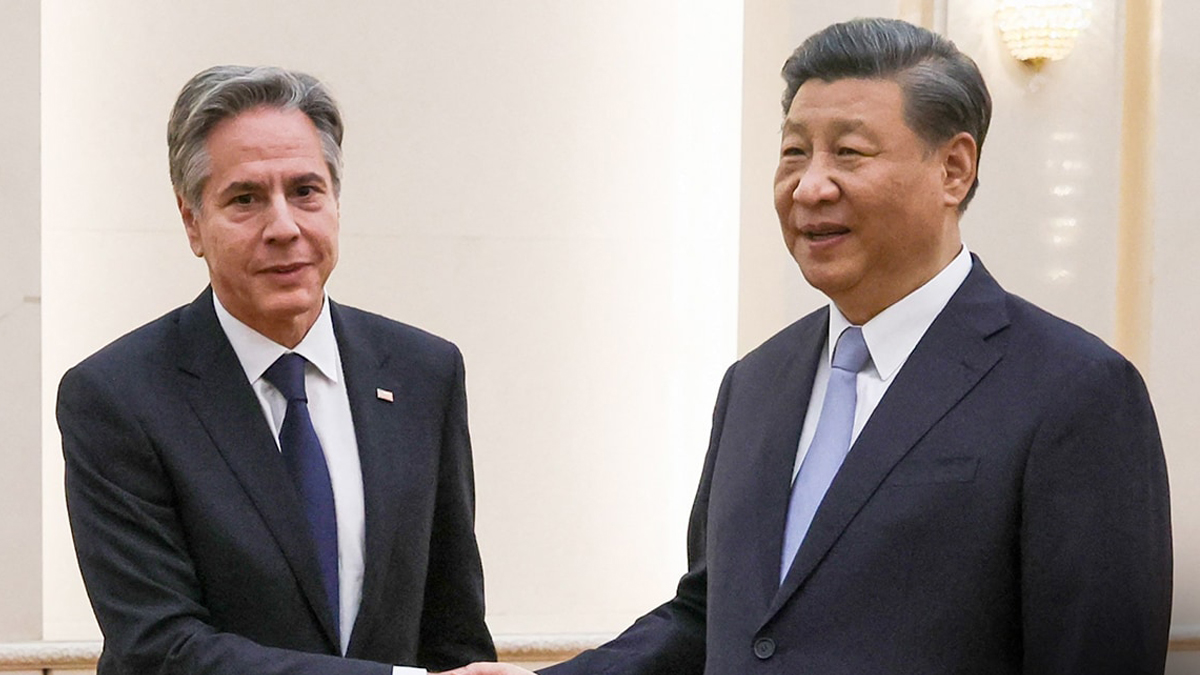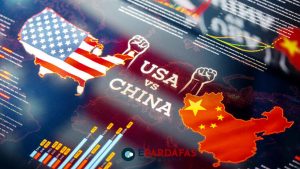
Xi Rejects US Bid for a Military Crisis Hotline: Blinken

China has refused to resume direct military communication with Washington despite repeated efforts from Secretary of State Antony Blinken, the top U.S. diplomat said on June 19 shortly after meeting with Chinese leader Xi Jinping.
While he “raised repeatedly” the prospect of setting up a crisis communication line between the U.S. and Chinese militaries, “at this moment, China has not agreed to move forward with that,” Blinken told reporters at a press conference as he wrapped up his two-day trip to Beijing.
“I think that’s an issue that we have to keep working on,” he said. “It is very important that we restore those channels. If we agree that we have a responsibility to manage this relationship responsibly, if we agree that it’s in our mutual interests to make sure that the competitive aspects of the relationship don’t veer into conflict, then surely we can agree and see the need for making sure that the channels of communication that we’ve both said are necessary to do that include military-to-military channels.”
As bilateral tensions keep rising, Beijing has resisted a consistent U.S. push to open up lines of communication to mitigate the risk of a potential flare-up. Since 2021, China’s leaders have declined or ignored more than a dozen requests to talk with the Pentagon and about 10 working-level engagement invitations from the U.S. side, Reuters reported, citing an unnamed senior U.S. defense official.
That includes in February after a U.S. military jet shot down a Chinese surveillance balloon traversing the United States.
Chinese defense minister Li Shangfu also refused an invitation for a formal meeting with U.S. Defense Secretary Lloyd Austin at the Shangri-La Dialogue security forum earlier this month.
In his first visit to China as the secretary of state, which made him the most senior Biden administration official to make such a trip, Blinken held talks with the Chinese foreign minister Qin Gang and Beijing’s highest-ranking diplomat, Wang Yi, and had a brief meeting with Xi.
Asked why Washington would want to continue engaging with China despite the apparent unwillingness to have open military communications from the other side, Blinken argued that such efforts are necessary to make changes happen.
“We’re not going to have success on every issue between us on any given day, but in a whole variety of areas—on the terms that we set for this trip, we have made progress and we are moving forward,” he said, without elaborating on any specifics. “But again, I want to emphasize none of this gets solved, resolved with one visit, one trip, one conversation. It’s a process. And my hope and expectation is that we’re more engaged in that.”
Retired U.S. Air Force Brig. Gen. Robert Spalding, now a senior fellow at the Hudson Institute, sees a less rosy picture.
The Chinese regime, he said, is using the military communication channel “as a bargaining chip to get more concessions from the Biden administration,” he told Epoch Times sister outlet NTD.
“We’re the ones that are asking for it, and quite frankly, the only one that’s going to make any kind of military decision is Xi Jinping himself,” he said.
“Essentially, I think we’re going for something that the Chinese don’t really care about, and so therefore, they’re holding it out as a bargaining chip for something they do care about.”
At a press briefing on June 19, White House press secretary Karine Jean-Pierre described Blinken’s visit as a “good step forward.”
But Spalding said he believes that the United States has “just really lost the ball on what is important with the relationship.”
“China’s trying to strip-mine the U.S. economy, and there’s no indication that we’re actually willing to protect it,” he said. Cutting U.S. supply chain dependence on China, and rebuilding U.S. infrastructure and industrial base, he suggested, should instead be a higher priority in managing the relationship with China.
A State Department spokesperson referred The Epoch Times to Blinken’s statements when asked about Spalding’s remarks.
This article is originally published on The Epoch Times by By .












Comments